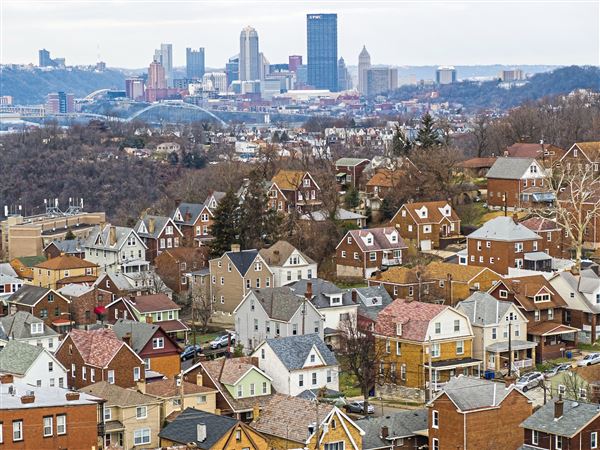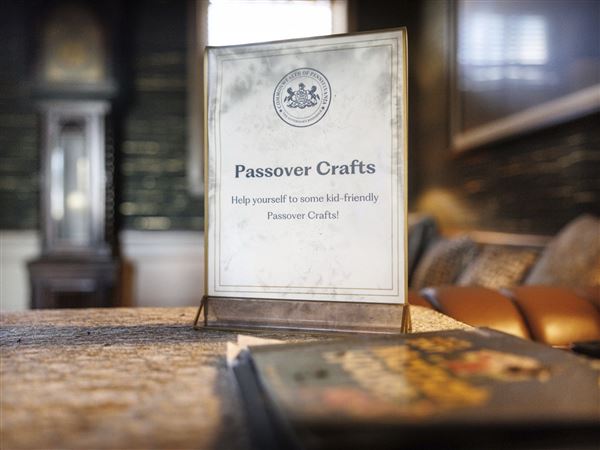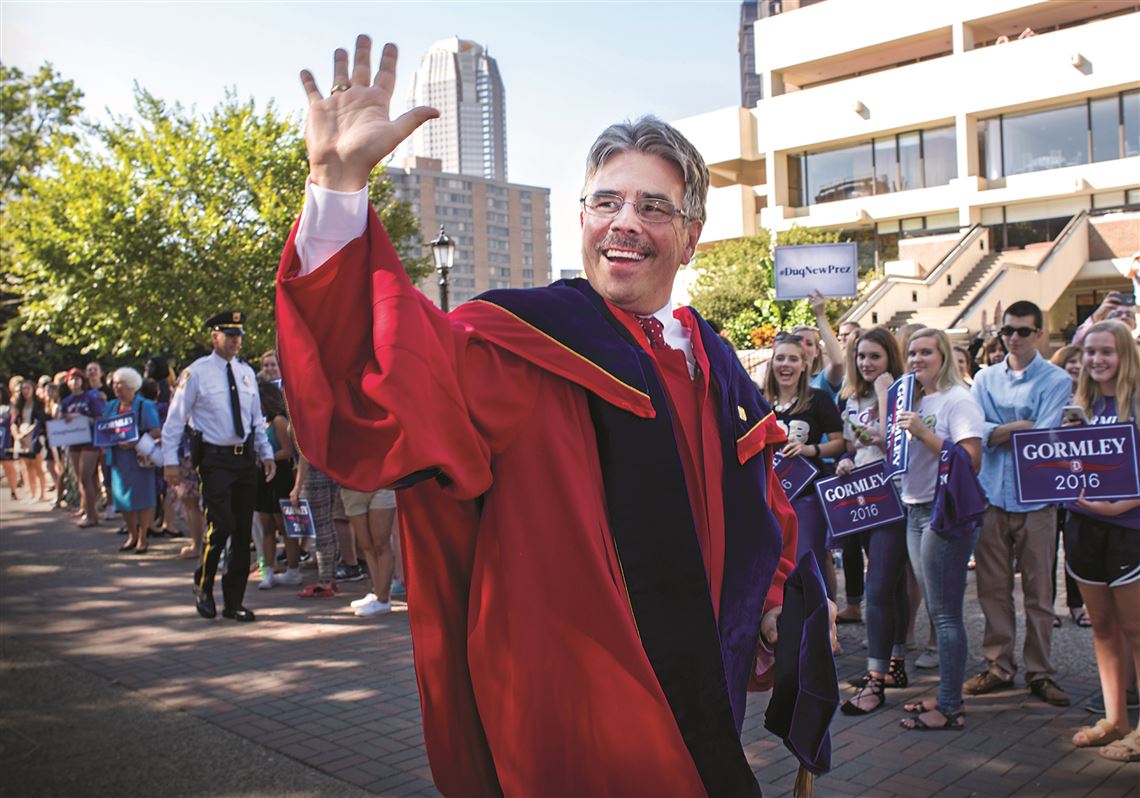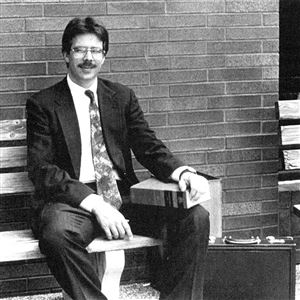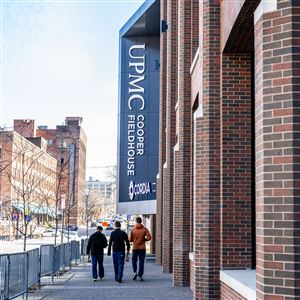Duquesne University President Ken Gormley will step down next year, officially ending a decade-long legacy that included the opening of a medical school and record-breaking fundraising at the Catholic institution, but also meant steering the 147-year-old university through a global pandemic that emptied its dorms and classrooms for months.
Mr. Gormley informed the university community Saturday that he planned to leave the position on July 1, 2026.
But his Duquesne career won’t officially close. He will assume the role of university chancellor, a more oversight-oriented position that will allow him to work alongside the institution’s next president and continue relationships with alumni and local leaders.
Truth is, Mr. Gormley — who has worked at Duquesne for more than three decades and is known for showing up at basketball games, teaching a few law classes and talking to the national media about subjects such as constitutional law — isn’t ready to fully retire.
“Ten years is a long time in the world of being a college president … but I've loved every minute of it, and as far as I'm concerned, I am going to keep working here and doing things that contribute to this special university on The Bluff,” Mr. Gormley told the Post-Gazette. “As long as I can keep doing something meaningful and positive.”
Mr. Gormley, who will turn 70 this month, became Duquesne’s 13th president in 2016. He previously served as dean and as a professor in the university’s law school.
His presidency was marked by growth and change at the Uptown school. In nine years, the university opened its College of Osteopathic Medicine that was a century in the making, amassed a record $333 million in a fundraising campaign, and underwent significant renovations at what is now the UPMC Cooper Fieldhouse.
Also during Mr. Gormley’s tenure, Duquesne saw historic achievements in sports, the opening of a new dormitory and student success center, creation of new academic programs, the introduction of more outdoor gathering spaces on campus, and enhanced partnerships with the Pittsburgh community.
“[Duquesne] has changed in a lot of significant ways,” Mr. Gormley said. “I sometimes pinch myself and can't believe that you can have ideas like this and they actually come to life in such tangible ways — but it only happens because other people buy into the vision.”
‘Golden years’
When Mr. Gormley took Duquesne’s helm in 2016, he said he felt the university had an inferiority complex.
Tucked in Uptown, the hilly campus often got lost between the tall skyscrapers of Downtown and bustling student life in Oakland.
Mr. Gormley said he envisions Uptown as “an epicenter,” a “glittering gateway” between Downtown and Oakland.
It wasn’t an accident, then, that the university’s new medical school and dormitory are both on Forbes Avenue, one of the city’s vital arteries.
It also wasn’t a coincidence that, after decades, Duquesne finally introduced the medical school at a time when the health care needs of Pennsylvania’s aging population are growing and health care workers are in decline.
The creation of the medical school was “truly historic,” Mr. Gormley said, but it is just one way that Duquesne has aimed to attract students and make an impact in Pittsburgh and beyond.
The university also created four engineering majors in 2023; engineering is a “key component” of any major research institution, Mr. Gormley said. Other “game changers” in recent years included fundraising efforts that reaped a record-breaking $50 million donation to the law school from alumnus Thomas Kline.
Such moves have ushered in “golden years for Duquesne,” Mark Nordenberg, chancellor emeritus of the University of Pittsburgh, said in a statement.
Likewise, Duquesne board chair Diane Hupp credited Mr. Gormley for elevating the university’s reputation.
“President Gormley has amassed a remarkable record of accomplishments during his decade as president and his 30 years at the university,” Ms. Hupp said in a statement. “Ken’s leadership and vision have allowed Duquesne’s reputation as a national Catholic university to soar during his time in office.”
Headwinds
But the most rewarding part of the job is the students, Mr. Gormley said. Several times each school year, the president serves pancakes and donuts to students.
He said students were front and center as he steered the institution through headwinds impacting colleges across the country over the past decade.
This included the coronavirus pandemic that hit five years ago, the “scariest thing” Mr. Gormley confronted as president.
When a Duquesne student became extremely ill with the virus early into the pandemic, it shook up the president. He knew Duquesne leaders had to prioritize both education and safety — a difficult balancing act that school administrators across the country struggled with.
Like all universities, Duquesne operated remotely during the spring 2020 semester. But in the summer of 2020, the school reopened for in-person classes while ensuring safety protocols were in place.
Though many schools operated remotely that summer, an overwhelming majority of Duquesne students and parents voiced support for in-person classes. Mr. Gormley said he decided to “do what was best for the students, not what was selfishly best for us.”
There have also been longer-term challenges over his decade in the university’s administration building.
Duquesne was not spared from the enrollment drops impacting many universities as the number of college-age people declines and more people question the worth — and cost — of a college degree.
When Mr. Gormley began his tenure, Duquesne enrolled 9,400 students. The student population dropped to 8,100 by fall 2023, though the university did enroll one of its largest freshman classes in fall 2024.
Annual base tuition at Duquesne is $51,000. At private schools like Duquesne, that sticker price is often reduced by scholarships. Duquesne recently touted the creation of more than 200 endowed scholarships through its ongoing fundraising campaign.
In response to steadily, if slowly, declining enrollment, Duquesne is in a continual state of “right-sizing” to ensure it doesn’t find itself with employees that it can’t afford, Mr. Gormley said. Each vacancy is closely examined to ensure Duquesne can afford to rehire for the position, he said.
“We’ve been shrinking as we go and trying to not have these draconian measures. It’s painful and it requires discipline,” Mr. Gormley said.
“Frankly, the faculty and staff have been great at working with us and recognizing that this is the world we all face. We have to recognize there’s no disgrace in having less students — that’s just a fact of the United States right now. We just have to adapt to that size.”
And higher-ed challenges aren’t easing, meaning Mr. Gormley will have to grapple with economic and political shifts through his last year as president.
Many universities have been impacted by recent federal research grant cuts introduced since the Trump administration took office in January — although Duquesne thus far “hasn’t seen much disruption,” Mr. Gormley said. In 2024, Duquesne received $1.6 million in National Institutes of Health grants, compared to Pitt’s $661 million and Carnegie Mellon University’s $37 million.
“There is a lot of uncertainty out there. Fortunately, I feel we're a little more secure than some of the institutions, but we're keeping a careful eye on everything, because these things can change on a dime,” he said.
‘Magical fit’
A Swissvale native, Mr. Gormley spent his youth delivering the Pittsburgh Post-Gazette and making chipped-chopped ham at Isaly's. He attended Pitt for his bachelor’s degree and attended Harvard Law School.
The son of a Catholic school teacher, Mr. Gormley said his mother taught him the value of Catholic education. After practicing in various legal and academic roles, Mr. Gormley joined the Duquesne law faculty in 1994. He soon realized the school was a “magical fit.”
“The magic was the mission of the place as a Catholic and Spiritan institution,” Mr. Gormley said. “Duquesne was founded to help recent immigrants and their families who'd come to Pittsburgh to work in the mills and the factories — to elevate them through education. That's still the goal: Service to others, including people who wouldn't ordinarily have the same opportunities.”
Duquesne was founded by the Spiritans, a group of Catholic missionaries, in 1878. Father John Fogarty, provincial of the Spiritans, said Mr. Gormley has “consistently uplifted the Spiritan mission” during his presidency.
“It is reassuring that his deep commitment to serving God by serving our students will continue, in new ways, for years to come,” Father Fogarty said in a statement.
Mr. Gormley is Duquesne’s third lay president. Half jokingly, he said he is the first president to have children attend Duquesne and wed in the university chapel — a nod to the fact that most of the presidents before him were priests.
The university has become “the center” of his family’s life, said Mr. Gormley, who has four children and five grandchildren. He lives with his wife, Laura, in Forest Hills, where he served as mayor from 1998 to 2001.
Pittsburgh Bishop David Zubik said Mr. Gormley has provided Duquesne with “strong and steady leadership.”
“As a proud alumnus of Duquesne, I offer him both my congratulations for this significant recognition and gratitude for his outstanding forward leadership,” Bishop Zubik said.
Looking ahead
Mr. Gormley hopes his successor can build on the momentum from the past decade, while continuing to face the headwinds that buffet higher education.
Specifically, he pointed to the need for the university’s next leader to understand the school’s mission of service. “We serve God by serving our students so that they, in turn, can serve others,” Mr. Gormley said.
The university’s board has yet to detail what the search process for Duquesne’s 14th president will entail. It will come as the average length of presidential tenures declines.
Looking to his chancellorship that begins next year, Mr. Gormley already has plans to keep busy.
At Duquesne, he will work with the new president in cultivating relationships with alumni, foundation leaders, community leaders and government officials. He also may be assigned special projects by the president and board chair. The role of chancellor has been bestowed upon other university presidents, including John E. Murray in 2001 and Father Henry J. McAnulty in 1980.
Personally, Mr. Gormley plans to start a new book project. A nationally known constitutional law scholar, he has already authored numerous books, including “The Death of American Virtue: Clinton Vs. Starr,” which details President Bill Clinton’s impeachment trial.
No matter what, Mr. Gormley plans to stay in Pittsburgh.
“Some people want to retire and go to Florida — not me. I'm not ready to retire … I still feel I have lots of energy and lots of ways that I can continue to help do some exciting things here,” he said. .
He vowed to continue supporting Duquesne “as long as I have gas in the tank.”
First Published: March 16, 2025, 12:00 a.m.
Updated: March 17, 2025, 5:55 p.m.
